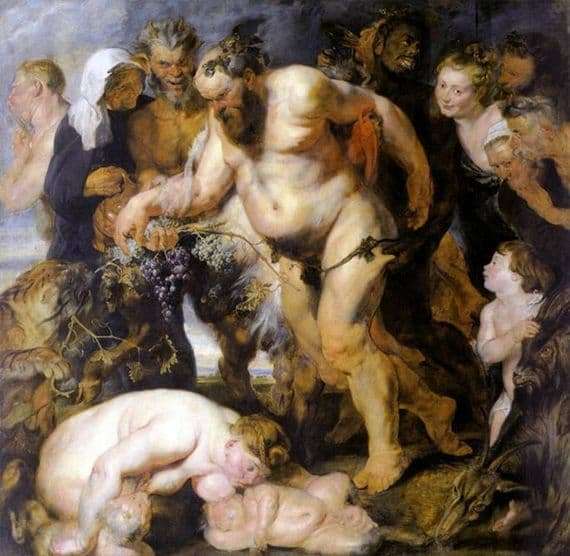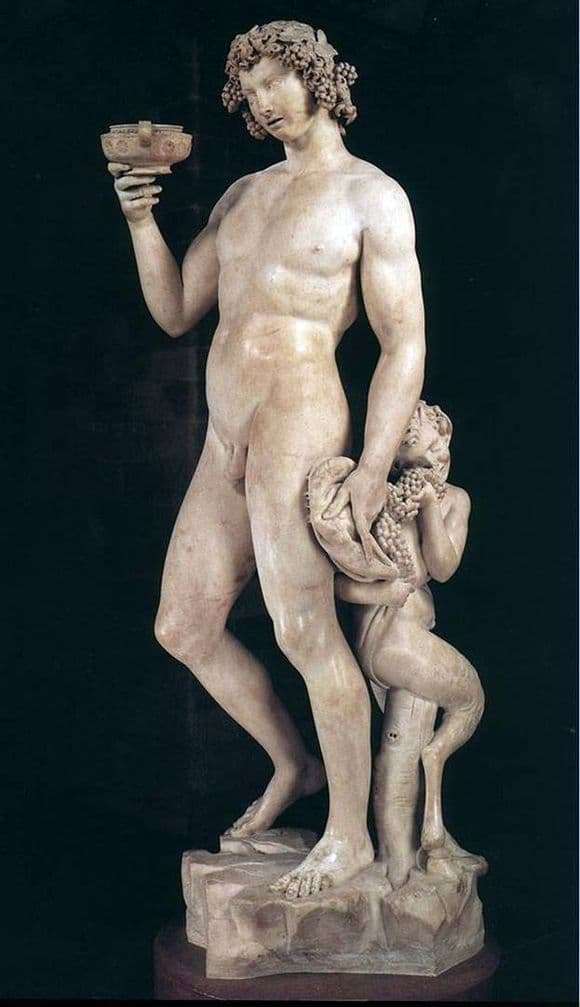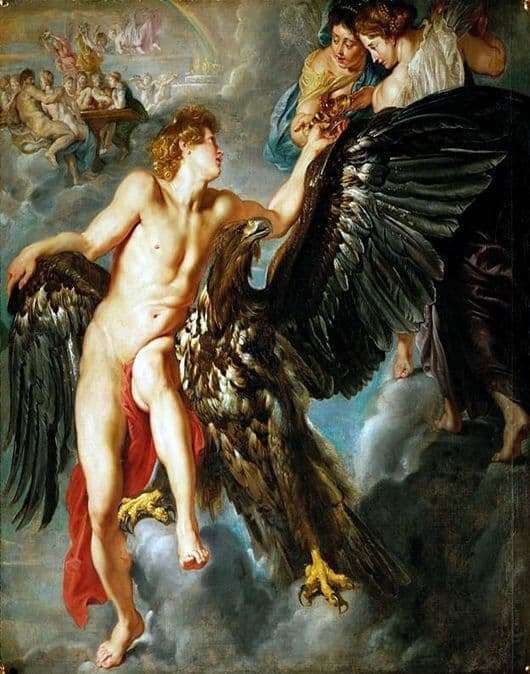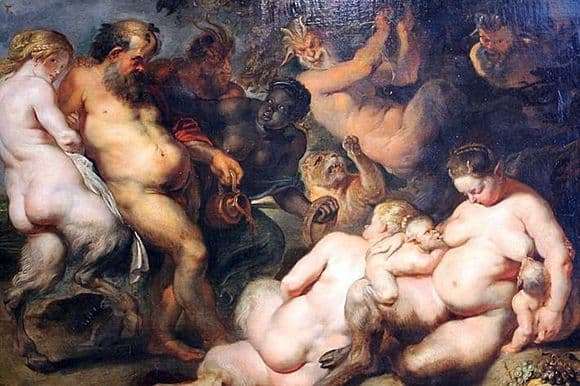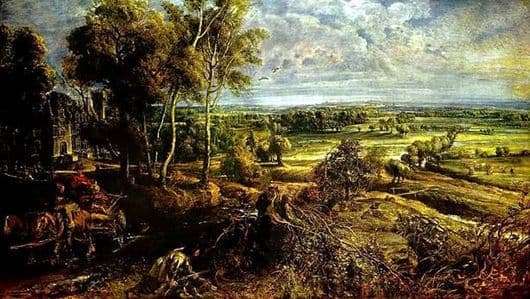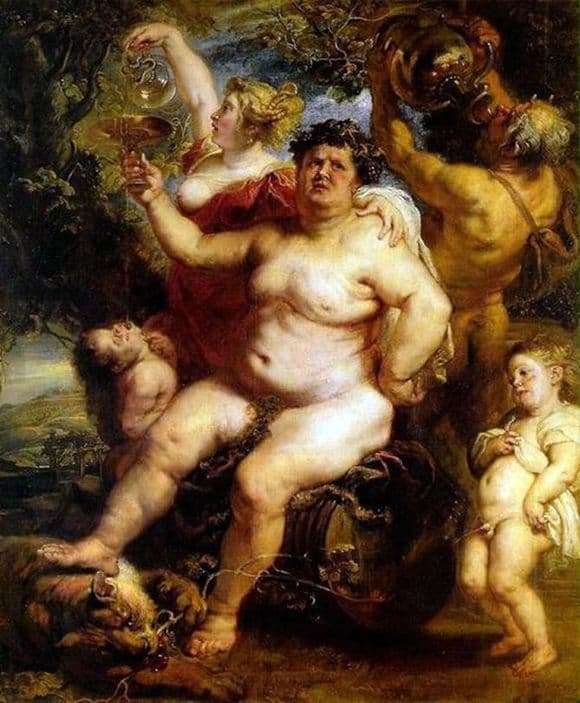
Rubens is a Flemish painter, master of Baroque – his paintings represent practically the essence of this style. He is cheerful, bright, with a lot of details, they celebrate life and glorify it, representing almost a slap in the face of death. Preferred religious and mythological subjects, especially revealing the myths of ancient Greece.
Bacchus – he is Dionysus, he is Bacchus – the god of winemaking, inspiration, vegetation and vitality, which nourishes everything. There, where he passes, lovely girls go wild with him, wine pours, general festivals and celebrations reign, where everyone who wants to have fun will have a place.
Rubens depicts him as a fat man, sitting on a barrel with wine and raising a bowl into which all the same wine is being poured. His Bacchus is corpulent and, judging by his face – fattened, almost thoughtful – close to being tired of the everlasting thing around bedlam. On his head is a wreath with bunches of grapes.
Drink around – a man, also naked, pours wine directly from a jug into her mouth, a woman bares one breast, pours on her master, the children around – one drinks wine pouring from the Bacchus cup, another urinates, apparently getting rid of drunk wine. A big cat under the foot of God lies on its side, looks pleased and obediently allows itself to be thrown down.
The whole composition is bound to Bacchus, as to the center. He allows get rid of all moral and other restrictions, open to the world and to take the time drunk, crazy and happy, gives meaning to their own orgy. Without him, she would have been an ugly feast of madmen. With him there is a certain higher meaning, liberation and boundless joy of wildness.
For some, the picture will cause disgust, for others – the desire to join the retinue of Bacchus, in which you can look any – fat, drunk. Insane.
Description of the painting by Peter Rubens “Bacchus”

